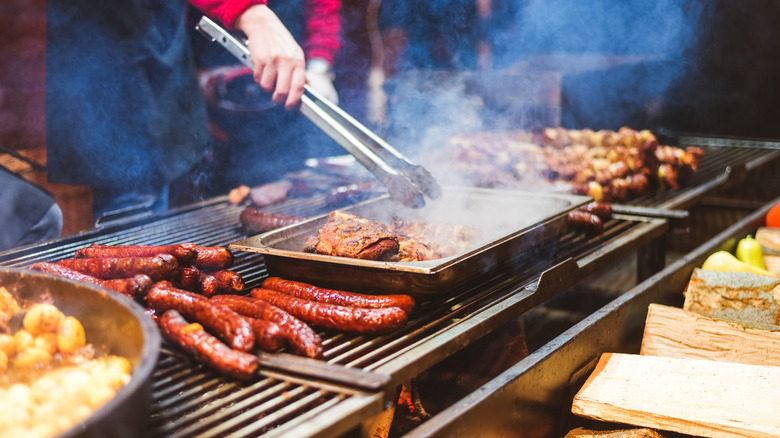Travel Guides Culinary Vacations
Nicole Findlay
There’s nothing worse than falling ill due to food poisoning while traveling. One of many health hazards of vacations, symptoms like stomach problems, fevers, and body aches can last anywhere from a few hours to a week. And it happens more frequently than one might imagine. According to the Centers for Disease Control and Prevention (CDC), approximately 1 out of every 6 Americans succumb to food poisoning yearly. So, how do travelers avoid food poisoning while away from home? And what should they do if they come down with a bout of gastrointestinal illness?
Some popular vacation destinations have a reputation for a higher risk of food poisoning. Unfortunately, improperly handled food occurs in every country of the world. As a general rule of thumb, always consider the temperature of food and be wary if raw fruit and vegetables may have been washed in contaminated water. No matter where travelers jet off to, whether it be a whirlwind international adventure or a simple staycation, a few important culinary tips could help avoid illness while traveling.
How to avoid food poisoning while traveling

Morgan23/Getty Images
While no food rules guarantee travelers don’t fall ill with food poisoning, there are things to keep in mind that will lower the chances of dreadful gastrointestinal infections. One simple tip is to consider temperature. It sounds easy enough but avoid lukewarm meals. Hot food should be steaming, and cold food should be on ice. If a meal meant to be hot is no longer at the correct temperature, chances are — it might have been sitting out for a while. Since germs thrive in damp atmospheres, time just gives bacteria (like E. coli, salmonella, listeria) a chance to grow. Be extra cautious when considering dining at buffets and purchasing food from street vendors.
Another critical consideration when traveling is the tap water. Many popular vacation destinations, like Mexico, are known to have contaminated tap water. While popular resorts have plenty of bottled water, raw fruits and vegetables may have been washed in contaminated tap water. Stick to fruit that can be peeled and vegetables you can wash yourself. Also, avoid drinking cold beverages with ice cubes made from tap water, and don’t swallow tap water while brushing your teeth or showering. Tap water should be boiled, filtered, or chemically treated before ingesting.
Got food poisoning while traveling?

Prostock-studio/Shutterstock
There’s no easy fix for food poisoning. The most important thing to do if suffering from a foodborne illness is to stay hydrated. Clean drinking water works great, as does Pedialyte. Sugar can make individuals with stomach issues feel worse, but a low-sugar Gatorade to replace lost electrolytes can also prove beneficial. If low-sugar options aren’t available, simply fill a glass with half Gatorade and half water.
For other food poisoning symptoms, ibuprofen can help with stomach pain, and Pepto-Bismol or Imodium can help with nausea. In an abundance of caution, consider packing medicines when traveling. Until the body returns to normal, avoid food that may upset stomachs, like anything greasy or spicy, and stay away from coffee and alcohol. Bland food will get travelers back up and out of the door faster and, therefore — happier. Food poisoning is a nightmare for any traveler, but it doesn’t have to ruin a holiday completely.

